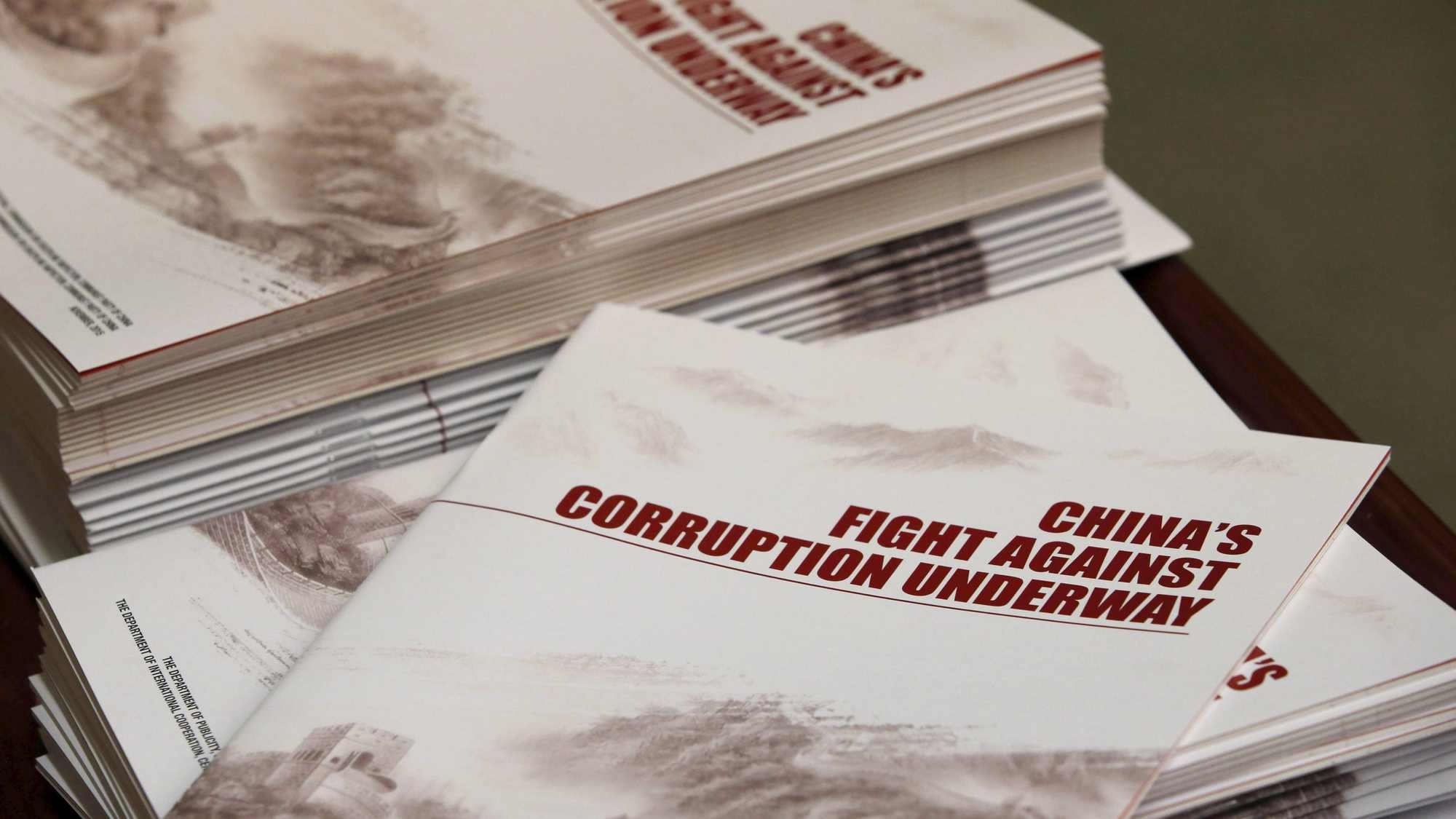China’s ongoing campaign to crack down on corruption, which has been effectively in place nationwide for more than four years, was launched by the Communist Party of China’s (CPC) leadership after the 18th CPC National Congress in late 2012.
Since then, the Party and governments at all levels have cracked down on corruption and laziness in office, through a wide range of measures and policies against illegal actions, bureaucracy and extravagance, as well as inspections of central and local governments. Meanwhile, a “mass line” campaign has been launched to bridge the gaps between officials and the public.

Copies of a booklet from the Central Commission for Discipline Inspection are seen on a table during its news conference in Beijing, China, January 15, 2016. /CFP Photo
Scores of very senior officials have been brought to justice. Between 2013 and 2015, procuratorial authorities handled 119,872 corruption cases involving 160,656 people. A total of 11,479 of the problem officials were punished in accordance with the law. This large-scale anti-corruption effort was conducted by the judicial authorities publicly in a transparent manner.
The ongoing effort will be reinforced with the establishment of a national supervision commission, which will be complemented by the new supervision law. The authorities are launching pilot programs in Beijing Municipality, the northern province of Shanxi and the eastern Zhejiang Province. The goal is to build a national anti-graft organ under the leadership of the Party, but more anti-corruption resources will be mobilized in order to “build a system that ensures officials dare not, will not and cannot be corrupt.”









